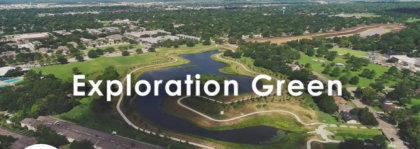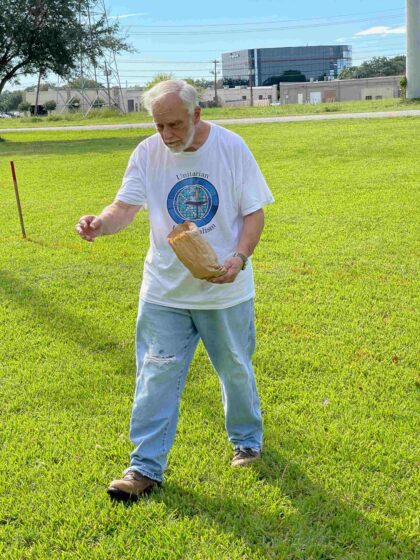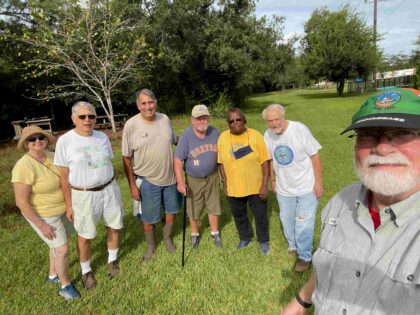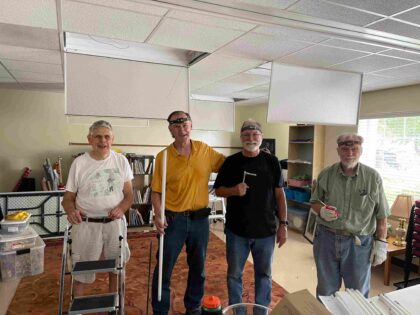Climate Crisis Task Force
In keeping with the seven principles of Unitarian Universalism, Bay Area Unitarian Universalist Church (BAUUC) has always been active in protecting our environment and was designated a Green Sanctuary Congregation by the Unitarian Universalist Association in June 2005. Recognizing the present existential threat of human-caused warming of our planet, church members approved the resolution, BAUUC Response to the Global Climate Emergency, at its March 2020 congregational meeting. The resolution outlines how the church plans to address this unprecedented crisis and directs “the Climate Crisis Task Force (CCTF) to identify and organize opportunities for BAUUC and its members to implement … efforts to ameliorate the climate crisis.” Since then, the Task Force has been meeting regularly to carry out the congregational directive. After polling the congregation and developing a response plan, the CCTF initiated multiple projects in co-operation of other church groups to reduce the church’s dependence on fossil fuels. Initiatives include, Installing Rooftop Solar Electric Panels, a Memorial Tree Planting Program, Establishing a Pocket Prairie, Improving Building Heating and Cooling Efficiencies, Installation of LED Lighting and a Smart Building Initiative. Interested church members are welcome to attend meetings and join the Task Force. Monthly meetings are announced in BAUUC Weekly Briefs. Contact Wally Calaway ([email protected]) for more information or to be added to the CCTF e-mail list.
Installing Rooftop Solar Panels
A major effort nearing completion is the installation of a rooftop solar panel array on the church building. After six months of researching building electrical power consumption and potential for future energy conservation options, a contract was signed to install 115 solar panels. The panels were installed in March of 2021 and began producing power in July. The 44 kW array can produce about 250 kWh of electrical power on a sunny day. The solar panel array is expected to produce 65,000 kWh of electrical power a year on average, which is about 70% the total annual consumption. The array will reduce the BAUUC’s carbon dioxide emissions by 30 tons/year for more than 25 years. The graph below displays the most recent day to day production of solar electric power by the rooftop array and is updated daily.
Solar Panel Production

Memorial Tree Planting Program
Because of limited space for planting additional trees on BAUUC property, the BAUUC Board recently approved a resolution proposed by the CCTF entitled, Resolution to use a portion of the Bay Area Unitarian Universalist Church (BAUUC) Memorial Fund for Memorial Tree planting at Exploration Green. This initiative will result in trees being planted at the Exploration Green flood control project in Clear Lake City. Members of the church will soon be able to have a tree planted at Exploration Green in memory of loved ones. The cost will be $200 for those who can afford it. For those who cannot, the church will help with the cost from the Memorial Fund, a fund created many years ago to help with memorials.

Establishing a Pocket Prairie
The CCTF is planning a small self-sustaining prairie, often called a pocket prairie, to be located on a 6,200 square foot plot of church property along the old cooling water canal behind the Spiral Garden. The plan is to plant native flower seeds this fall and to add prairie grass seedlings next spring. The pocket prairie will be mowed only once a year. Prairie grasses sequester about 100 pounds of carbon per year in the area of the pocket prairie. By reducing mowing, carbon dioxide and other pollutants will be minimized. Every gallon of gasoline burned by a riding lawn mower produces about 20 pounds of CO2. The project owes much thanks to Jim Duron, prairie restoration volunteer at Armand Bayou Nature Center, for providing seeds, seedlings and much needed expert advice.


Improving Heating and Cooling Efficiencies
The decision to offset only 70% of electrical demand with solar power is a recognition that energy conservation is an important part of reducing fossil fuel usage. An inventory of heating and cooling equipment revealed that nearly 30% of the church building’s electrical demand is wasted due to older less efficient air conditioning and heating units. Working with the Building and Grounds Ministry Team, procedures are now in place to replace older air conditioning units with more efficient units as they fail and to replace electrical resistivity heating units with heat pumps when possible. The aim of this conservation plan is to eliminate 30% of the church building’s electrical demand by 2030.
Installation of LED Lighting
The CCTF and Building and Grounds Ministry Team is in an on-going effort to replace all lighting in the church building with more efficient LED lighting. Crews of volunteers have successfully replaced the lighting in the Sanctuary, the front office wing of the church, the kitchen area, the Cockrell Hall foyer and all Religious Education Wing classrooms. The remaining lighting in Cockrell Hall and the hallway recessed ceiling lights will be completed in the coming months. This effort has already made a noticeable reduction in the electrical consumption compared to 2019.

Smart Building Initiative
The CCTF in conjunction with the Building and Grounds Ministry Team is in an on-going effort to install appropriate “smart building” technologies at BAUUC. Because of the many varied lights in the Sanctuary and the need to configure them differently for different situations, smart switches were installed to control all the lights. Routines have been written to set up the lights for the different uses of the Sanctuary. The current initiative is to install smart thermostats to control the twelve heating and cooling regions of the building. The smart thermostats will allow minimizing the peak electrical demand, which influences the church’s monthly electric bill.





